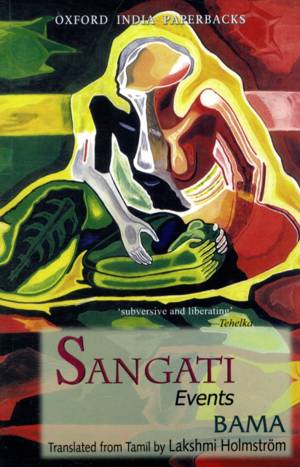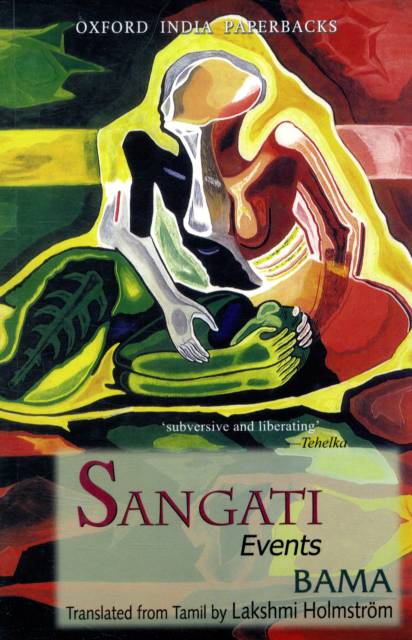
Bedankt voor het vertrouwen het afgelopen jaar! Om jou te bedanken bieden we GRATIS verzending (in België) aan op alles gedurende de hele maand januari.
- Afhalen na 1 uur in een winkel met voorraad
- In januari gratis thuislevering in België
- Ruim aanbod met 7 miljoen producten
Bedankt voor het vertrouwen het afgelopen jaar! Om jou te bedanken bieden we GRATIS verzending (in België) aan op alles gedurende de hele maand januari.
- Afhalen na 1 uur in een winkel met voorraad
- In januari gratis thuislevering in België
- Ruim aanbod met 7 miljoen producten
Zoeken
€ 32,45
+ 64 punten
Omschrijving
Sangati is a startling insight into the lives of Dalit women who face the double disadvantage of caste and gender discrimination. Written in a colloquial style, the original Tamil version overturns the decorum and aesthetics of upper-caste, upper-class Tamil literature and culture and, in turn, projects a positive cultural identity for Dalits in general and for Dalit women in particular.
Sangati flouts received notions about what a novel should be and has no plot in the normal sense. It relates the mindscape of a Dalit woman who steps out of her small town community, only to enter a caste-ridden and hierarchical society, which constantly questions her caste status. Realizing that leaving her community is no escape, she has to come to terms with her identity as an educated, economically independent woman who chooses to live alone. In relating this tale, Bama turns Sangati into the story not just of one individual, but of a pariah community.
Sangati flouts received notions about what a novel should be and has no plot in the normal sense. It relates the mindscape of a Dalit woman who steps out of her small town community, only to enter a caste-ridden and hierarchical society, which constantly questions her caste status. Realizing that leaving her community is no escape, she has to come to terms with her identity as an educated, economically independent woman who chooses to live alone. In relating this tale, Bama turns Sangati into the story not just of one individual, but of a pariah community.
Specificaties
Betrokkenen
- Auteur(s):
- Vertaler(s):
- Uitgeverij:
Inhoud
- Aantal bladzijden:
- 152
- Taal:
- Engels
- Reeks:
Eigenschappen
- Productcode (EAN):
- 9780195698435
- Verschijningsdatum:
- 15/04/2009
- Uitvoering:
- Paperback
- Formaat:
- Trade paperback (VS)
- Afmetingen:
- 137 mm x 208 mm
- Gewicht:
- 181 g

Alleen bij Standaard Boekhandel
+ 64 punten op je klantenkaart van Standaard Boekhandel
Beoordelingen
We publiceren alleen reviews die voldoen aan de voorwaarden voor reviews. Bekijk onze voorwaarden voor reviews.









